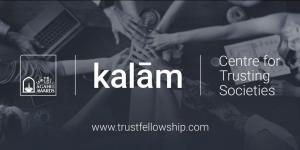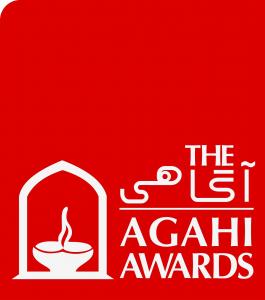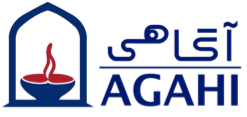Exponential Growth of Technology Poses Newer Challenges to Media Freedom

The Trust Fellowship Programme focuses on ‘The Hazards of Information Disorder’. The programme aims to encourage information hygiene by improving the state of factual reporting practices in the country with the mission to cultivate trust in the society. T

The AGAHI Awards are an annual award series for journalists across Pakistan. These Awards provide a platform to celebrate and recognize the work of credible and dedicated journalists. AGAHI Awards were inaugurated in Pakistan for the very first time in Ma

AGAHI in association with several leading national and international partners focuses on creating shared spaces for interactive learning, collaborative thinking, and knowledge sharing. AGAHI is at the forefront of devising foresight research and future s
KALĀM CENTRE FOR TRUSTING SOCIETIES RECOGNIZES AGAHI AWARDS WINNERS AS TRUST FELLOWS 2021-22.
AGAHI observed the United Nations International Day for the Right to the Truth Concerning Gross Human Rights Violations and the Dignity of Victims. AGAHI organized the online session with journalists, academics and experts focusing truth and its importance in the context of human rights violations.
Joining the session Dr Mowadat Hussain Rana, one of Pakistan’s leading psychiatrist and cognitive scientist expressed that, wars, slave trades, colonization, imperialism, and economic subjugations may all become a thing of the past and that the challenges in the context of exponential technologies which will become the key determinants of human pre-thought an essential factor to consider while developing an understanding on the future of human rights.
As public struggles to separate truth from fiction; in a post-truth era and advancements in ‘deep fakes’ Journalists have a particular responsibility as powerful force for change in both developed and developing countries. According to multiple reports, trust in media and particularly in journalism and news has been experiencing a long and steady decline over the past few years. There are multiple reasons behind this declining level of trust, one of the prominent is misinformation and disinformation.
“Understanding factors that drive trust in journalism in the local context is an essential asset that serves media freedom, and this is becoming ever so more critical in times of exponential growth of technology, which is shaping public consciousness” said Puruesh Chaudhary, Lead KALĀM Centre for Trusting Societies and Founding President AGAHI.
Dr Najma Sadiq, Head of Mass Communications, National University of Science and Technology, Islamabad (NUST) elaborated on the pillars of trust in the construction of information and news, the indicators open for discussion included: research, credibility, predictability, fairness, balance, relevance, contextualization, presentation, accessibility, and interactivity on online platforms.
Recognizing these global developments and its impact on the local context, on December 10, 2021, at the 9th Annual AGAHI Awards with the support from the Ambassade De France AU Pakistan the winners in the categories of human rights and democracy, Sidra Dar and Aiman Mahmood were recognized as Trust Fellow 2021-22. In a three-month fellowship programme aimed to encourage information hygiene by improving the state of factual reporting practices in the country with the mission to cultivate trust in the society.
The Fellowship exposure equipped the Fellows to better comprehend the known and the unknown threats that emanate from information disorders including an advance understanding of the types of misinformation, disinformation and malinformation practices by a network of academics and mentors. The eight contextualized training modules developed by senior academics were designed to enable an understanding around factors that drive trust in journalism.
During the online session the two fellows Sidra Dar and Aiman Mahmood both presented their research work focusing on the categories they won the AGAHI Awards in; Mahmood’s fishermen of Ibrahim Hayderi story was covered through a democracy lens whereas Dar’s was focused on the identity challenges of the Bengali community oriented more towards the human rights.
The mentors for the Trust Fellowship Programme also joining the session Osama Bin Javaid Senior Journalist at Al Jazeera and Razeshta Sethna Senior Editor at Dawn implied how truth becomes an important pillar for a journalist in current times of chaos and turmoil. The session was attended by leading academics, journalists, students, and other professionals from Pakistan and other countries.
Each year, on 24 March, the UN International Day for the Right to the Truth Concerning Gross Human Rights Violations and for the Dignity of Victims is observed. The purpose of the Day is to Honor the memory of victims of gross and systematic human rights violations and promote the importance of the right to truth and justice. It also pays tribute to those who have devoted their lives to, and lost their lives in, the struggle to promote and protect human rights for all.
The Trust Fellowship Programme focuses on ‘The Hazards of Information Disorder’. The programme aims to encourage information hygiene by improving the state of factual reporting practices in the country with the mission to cultivate trust in the society. This Fellowship exposure is designed around contextualized academic and research training that enable an enlightened understanding of the factors that drive trust.
‘Kalām’ Centre for Trusting Societies encourages and supports initiatives designed to improve trust as one of the fundamentals of human agency and wellbeing. The platform explored how information overload in a digital age can lead to crisis of trust on the UNESCO Global Information Literacy Week in October 2021.
For more information, please visit http://www.trustfellowship.com
Rubia Javed
AGAHI
+92 300 9491312
email us here
Exponential Growth of Technology Poses Newer Challenges to Media Freedom
Legal Disclaimer:
EIN Presswire provides this news content "as is" without warranty of any kind. We do not accept any responsibility or liability for the accuracy, content, images, videos, licenses, completeness, legality, or reliability of the information contained in this article. If you have any complaints or copyright issues related to this article, kindly contact the author above.
